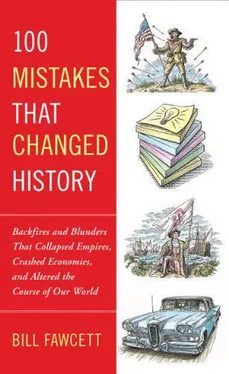Stories such as these are probably legends created long after Alexander’s death, but they do lend merit to Alexander’s belief that he was the son of Zeus: a seed no doubt planted by his mother, who wanted more than anything to secure her son’s place on the throne. Philip had many wives, and Olympias was a foreigner. If Philip married a Macedonian woman and the union produced a son, that son would become the rightful heir. Olympias knew that if her son was believed to be a god, then no one would dare challenge him.
Alexander grew up in the capital of Pella and attended a prestigious school. He trained in athletics and learned how to fight and be a leader. He also studied academics as well as philosophy and ethics. Philip provided only the best for Alexander. He even supplied the greatest philosopher of the day, Aristotle, to tutor him. Alexander relished all that Aristotle taught him. He once said, “My father gave me the gift of life, but Aristotle taught me to live well.”
He also learned to love well. In his youth, Alexander befriended a young man named Hephaestion, whom many believed was also his lover. For the rugged King Philip, the idea of having an effeminate son as an heir was an embarrassment. So he had prostitutes brought in for Alexander to “sample.” Although Alexander later became involved with several women and eventually married, he still remained close friends with Hephaestion for most of his life.
Philip may have had doubts about his son’s sexuality, but he had no doubts in his son’s ability as a leader. In 338 BCE, Philip put the eighteen-year-old Alexander in command of the 2,000-man Companion Cavalry. It might have been a risky move, but in the end it paid off. Philip found himself facing the Athenians as well as their Theban allies in a place called Chaeronea in central Greece. When the Athenians moved toward Philip’s forces, they left a gap between their army and that of the Thebans, who stood their ground. Alexander wasted no time. He charged his cavalry in between the two armies, encircled the Thebans, and wiped them out. Not one was left standing. The Athenians in the meantime were outmanned by Philip’s Macedonians and surrendered. The victory at Chaeronea gave Philip control of all of Greece. It should have been the beginning of a great father-son alliance, but Philip did something that threatened Alexander’s succession. He got married… again.
This time, Philip married a twenty-year-old Macedonian woman named Cleopatra. (Not to be confused with the famous Egyptian queen of the same name.) If Cleopatra produced a male heir, this Macedonian prince would rule after Philip’s death, while Alexander would be reduced to the rank of general and would have to take orders from his younger brother, the king. Alexander was not about to see that happen, and neither was his power-driven mother, Olympias. Tensions in the family grew high.
On the night of the wedding feast, when all the men were full of spirits, Attalus, the uncle of the bride, proposed a toast that the union would result in a legitimate heir to the Macedonian kingdom. To which Alexander replied, “What do you take me for, a bastard?” He then threw his wine in Attalus’ face. Philip started toward Alexander, tripped, and fell down. Alexander scoffed, “This is the man that wishes to cross from Europe into Asia, yet he cannot even pass from one couch to another.” These words, spoken in anger, severed the father-son relationship. Alexander did not have the chance to reconcile with his father. In 334 BCE, just after the birth of his son to Cleopatra, Philip died, killed by one of his own bodyguards. At the tender age of twenty, Alexander became ruler of a vast Greek empire.
Alexander had one goal upon rising to the throne—and that was to fulfill his father’s dream of conquering Asia and the Persian king Darius. He massed 40,000 troops and transported them across the Dardanelles (the Hellespont), a feat unheard of in his day. Darius did not encounter Alexander at sea. Had he done so, events might have taken a different turn. Darius’ navy was three times as large as Alexander’s. In the end, Darius refused to fight the “Greek boy” head-to-head. Instead he sent his Greek mercenary general, Memnon, to face the young upstart.
Memnon chose the Granicus River as his battleground. When Alexander crossed the Granicus and defeated Memnon’s forces, Darius realized he was facing a man, a man who believed himself to be invincible. Alexander led his armies from the front, wearing plumes in his helm. There was no mistaking his identity. He made himself the target of all who would dare to fight him. Darius would not make the same mistake again. He gathered an army of 600,000 men and made his way toward Issus. Although modern historians believe the number of troops to be closer to 100,000, Alexander’s forces of 30,000 to 40,000 men were still greatly outnumbered. Having far fewer troops, and his supplies cut off in the midst of the engagement, seemed to matter very little to Alexander, who managed to crush Darius’ army. Upon which Darius fled for his life.
Alexander didn’t wish to be seen as a tyrant. He thought he was the son of Zeus, and gods flourish in praise. He allowed Darius’ family to keep their status and live as they had always done. They kept their servants and were under his protection. Darius wrote Alexander a letter offering friendship, his daughter’s hand in marriage, and all the land west of the Euphrates. He also offered to pay ransom for the Persian prisoners. Alexander responded by telling Darius he should not address him as an equal, but as the king of all Asia. His first move as the new ruler of Asia was to try to conquer the island fortress of Tyre. The Babylonian king, Nebuchadnezzar, tried for thirteen years to break through the walled defenses and failed. Alexander did it in seven months. He built a half-mile-long causeway across the water leading to the fortress. His troops penetrated the wall and killed 8,000 people. The rest were sold into slavery—so much for not looking like a tyrant.
After crossing into Egypt and officially being pronounced a god, Alexander once again came head-to-head with Darius. In what is now known as the Battle of Gaugamela, Alexander defeated the forces of the Persian emperor because Darius III had a flaw that cost him everything (see pages 24-26). After which, the Persian empire really did belong to Alexander. He took over the palace at Persepolis and captured 180,000 talents of gold. Considering that one talent was 57.5 pounds of gold, the amount was almost obscene. It was the greatest treasure ever captured. Alexander was easily the richest man in all of the known world. He celebrated with a night of drunken revelry, during which the palace was burned down and men wreaked havoc inside the city. Many of the soldiers felt like they had achieved their ultimate goal, but Alexander’s lust for conquest was not yet satisfied. He decided to turn his troops toward India.
Alexander had a fascination for unknown lands. These exotic places had a lot to offer a man with a great many lusts. The women were strange, mysterious, and excitingly beautiful. Alexander fell passionately in love with one in particular, Roxanne, the daughter of a Sogdian baron whom he had captured. No doubt it came as a great surprise to Hephaestion and the other men when he decided to marry her. Alexander became completely engulfed in the culture. He donned white robes, and gave the order that his men should kiss his hands and prostrate themselves or kneel before him, for the sake of “appearances.” In Greece, this was an act reserved only for the gods. When Alexander’s historian refused, Alexander had him executed.
Alexander’s lust for battle was challenged to the extreme when he encountered a most formidable foe: elephants. King Porus used the creatures to great advantage and nearly defeated Alexander and his troops. In the end, Alexander managed to overcome Porus, but at enormous cost. His advisers agreed that the best move would be to return to Greece. It was not the advice Alexander had hoped for. He did, however, turn his army back, but not without taking every city in his path. It was during one of these encounters that Alexander received a near-fatal wound. He was shot through the lung with an arrow. He eventually recovered and left India.
Читать дальше












